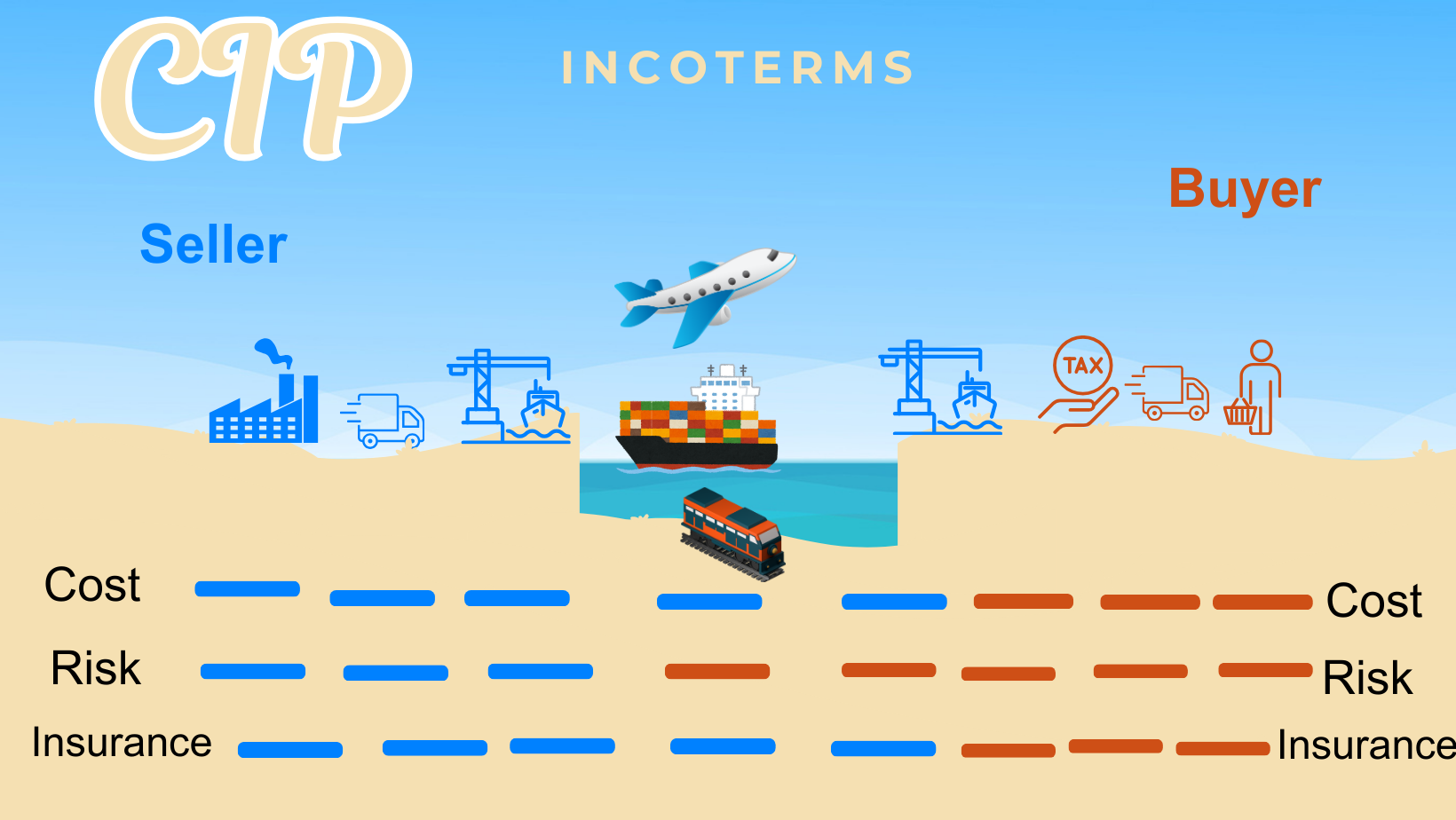CIP Incoterms: Everything You Need to Know
July 9, 2024
Incoterms CIP Definition
CIP Incoterms stands for “Carriage and Insurance Paid To”, which is one of 11 Incoterms, a set of standardized trade terms used globally published by the International Chamber of Commerce (ICC).
CIP Meaning
CIP Incoterms means:
- The seller arranges and covers the cost and freight insurance from the port of loading to the carrier or designated location.
- After that, the buyer accepts the goods and covers the subsequent costs and associated risks.

Seller & Buyer Obligations
Sellers’ Obligations:
- Managing documents and invoicing
- Customs, export, and inspection fees
- Packaging the goods for shipment
- Transporting the goods to the carrier or predetermined location
Buyers’ Obligations:
- Import duties
- Customs Clearance and inspection fees
- Payment to the seller
When to use CIP Incoterms
1. When the Seller Wants to Control Transportation
Incoterms CIP is a good choice when the seller wants to control the transportation and ensure the goods are delivered safely.
2. When Freight Insurance is Necessary
Incoterms CIP requires the seller to cover insurance during transportation. This makes sure that the goods are well protected until they reach the carrier or designated location.
3. When Both Sides Agree on a Place of Delivery
Incoterms CIP requires both sides to choose a place of delivery (a carrier or a location) to unload the goods. Before the goods arrive, the seller shoulders responsibility. Upon arrival, the buyer assumes the responsibility.
4. When Responsibility is Clearly Defined
Under Incoterms CIP, the seller is responsible for all costs to the predetermined destination, including transportation and insurance. This helps reduce misunderstandings.
5. When Risk Transfer is Needed
When the cargo arrives at the place of delivery, the risk transfers from the seller to the buyer.
This means both sellers and buyers bear half of the risk, making the trade fairer to both sides.
Incoterms CIP VS CIF
Modes of Transport
- CIP Incoterms: various modes
- CIF Incoterms: ocean shipping
Transfer of Risk
- CIP Incoterms: when the goods are handed over to the carrier or designated location
- CIF Incoterms: when the goods are handed over to the port of loading
Seller Responsibility
- CIP Incoterms: The seller is responsible for all costs to the carrier or the designated location
- CIF Incoterms: The seller is responsible for all costs to the port of loading
Pros and Cons of CIP Incoterms
Pros
- Clear Responsibility
- Applicable for Multi-Modal Transport
- Global Recognition and Acceptance
Cons
- Limited Control for Buyer
- Higher Cost for Seller
- Complex Claims Process
Conclusion
In conclusion, CIP Incoterms is a globally recognized trade term that clearly defines the responsibilities of the seller and buyer. YQN’s professionals are proficient in all Incoterms and shipping terms.
If you want more information about CIP (Carriage and Insurance Paid To), please contact our logistics experts at YQN Logistics. Manage your supply chain today!
---
YQN Operation Team
info@yqn.com





